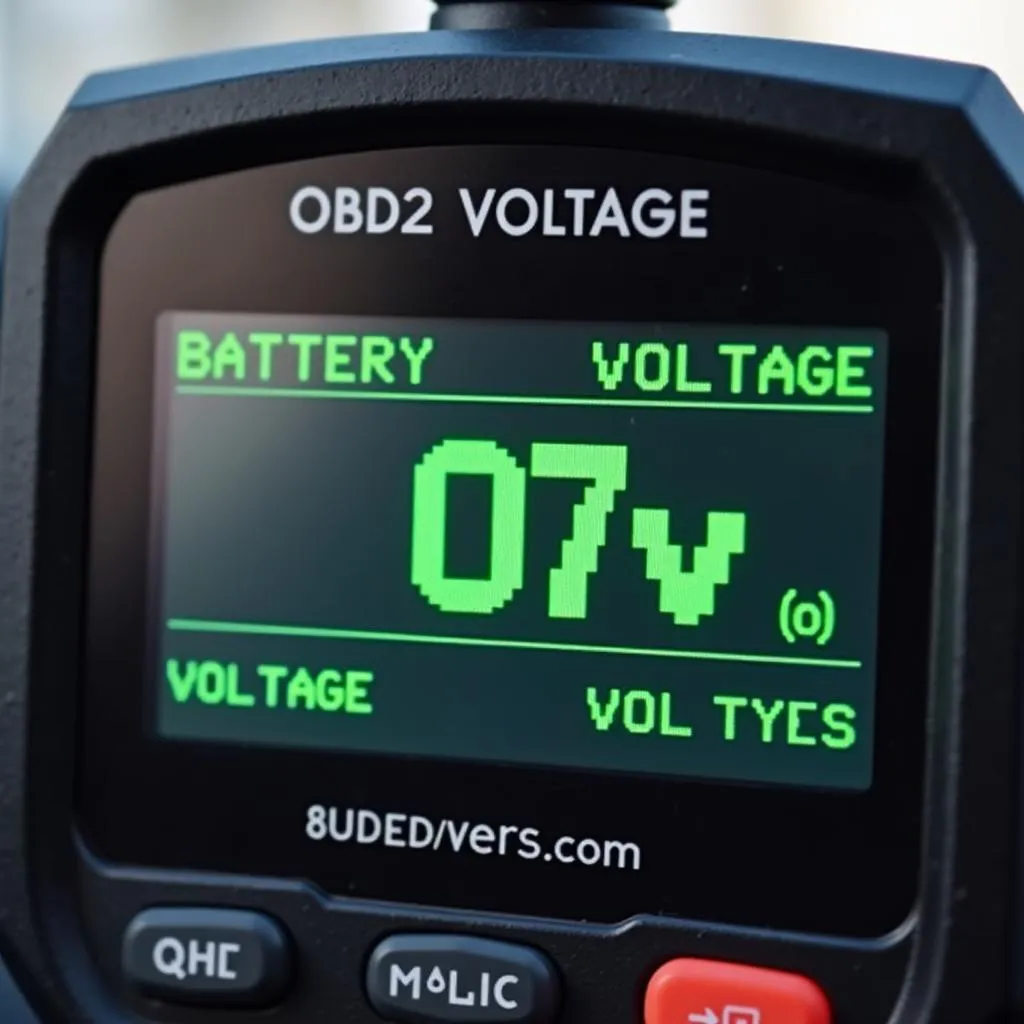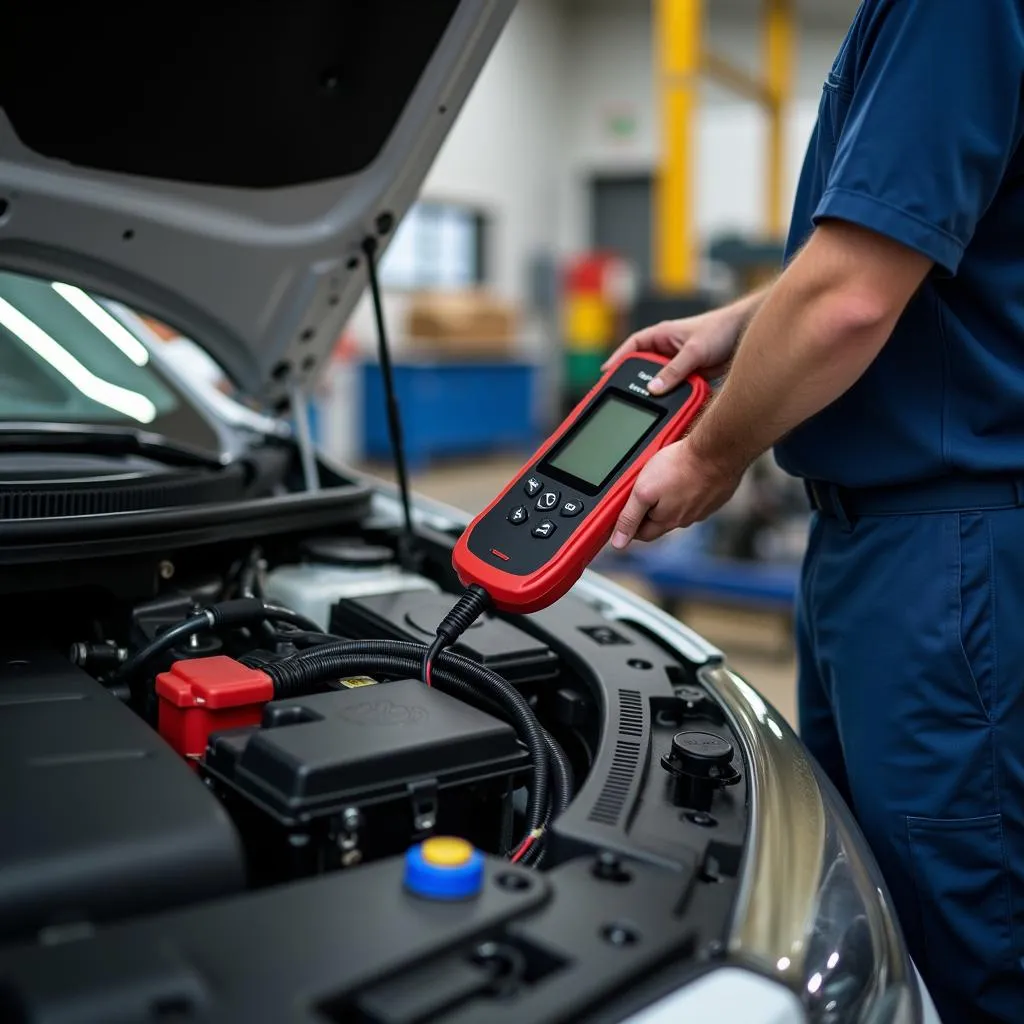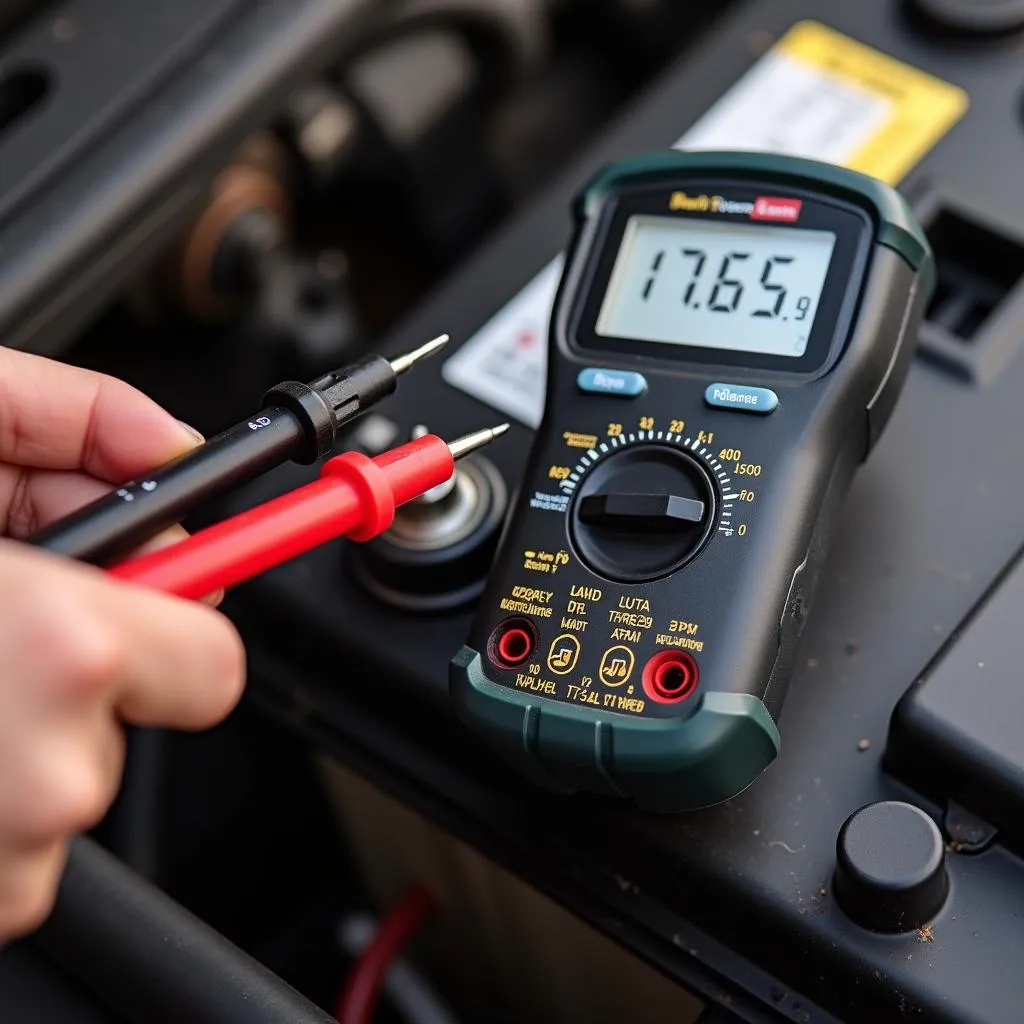Your cart is currently empty!

Unveiling OBD2 Battery Info: Your Key to Battery Health
The health of your car battery is paramount, and accessing accurate Obd2 Battery Info can be a game-changer. Your car’s OBD2 port isn’t just for mechanics anymore – it’s your window into understanding your battery’s performance and longevity.
What Battery Insights Can an OBD2 Scanner Reveal?
While not all OBD2 scanners are created equal, many offer a suite of battery-related data that can be incredibly valuable:
- Battery Voltage: This crucial measurement tells you how much charge your battery holds. A healthy battery at rest should show around 12.6 volts.
- Charging System Performance: The scanner can monitor how well your alternator is charging the battery while the engine is running.
- Battery Temperature: Extreme temperatures can impact battery life, and an OBD2 scanner can alert you to any concerning fluctuations.
- Battery State of Charge (SOC): This provides a percentage of how much charge is remaining in your battery, offering a more user-friendly view than raw voltage.
 OBD2 Scanner Displaying Battery Voltage
OBD2 Scanner Displaying Battery Voltage
Why is Monitoring OBD2 Battery Info Important?
You might be wondering, “Why bother with an OBD2 scanner when I can just look at the battery terminal?”. Here’s the truth – a visual inspection only tells part of the story.
- Early Problem Detection: An OBD2 scanner can pick up on minor voltage drops or charging irregularities that might be missed otherwise. This early detection allows for timely intervention, potentially preventing a breakdown.
- Proactive Maintenance: Regularly monitoring your battery’s data helps you understand its overall health and performance. This knowledge allows you to anticipate when it might be time for a replacement, avoiding unexpected issues.
- Cost Savings: Addressing battery problems before they escalate can save you money on costly repairs or replacements down the line. Plus, a well-maintained battery simply lasts longer.
 Mechanic Diagnosing Battery with OBD2 Scanner
Mechanic Diagnosing Battery with OBD2 Scanner
Choosing the Right OBD2 Scanner for Battery Monitoring
The market offers a vast range of OBD2 scanners, but not all are ideal for battery analysis. Here’s what to look for:
- Battery-Specific Functions: Ensure the scanner explicitly states its ability to read battery voltage, charging system data, and ideally, State of Charge.
- Data Logging: The ability to log data over time allows you to track battery performance trends and spot gradual declines more effectively.
- User-Friendliness: Opt for a scanner with a clear display and intuitive interface for easy data interpretation.
obd2 for ipad with bluetooth are an excellent example of user-friendly scanners with advanced features.
Understanding Common OBD2 Battery Issues
Here are some common battery-related issues that an OBD2 scanner can help you identify:
- Low Voltage: A consistently low voltage reading, even after charging, might indicate a failing battery that needs replacement.
- Overcharging: If the scanner shows excessively high voltage when the engine is running, it could point to a faulty alternator overcharging the battery, potentially leading to damage.
- Parasitic Drain: By monitoring battery voltage with the engine off, the scanner can help detect any abnormal drain on the battery, such as a faulty electrical component.
obd2 in car display dashboard can provide real-time information about your battery’s health and alert you to any potential issues.
Beyond the Basics: Advanced Battery Diagnostics
For those seeking deeper insights, advanced OBD2 scanners and software can provide:
- Battery Resistance: This measurement reflects the battery’s internal resistance, a key indicator of its overall health and ability to deliver current.
- Cold Cranking Amps (CCA) Test: This test simulates the battery’s ability to start the engine in cold temperatures, providing a valuable measure of its starting power.
Expert Insights
“Many drivers underestimate the importance of regular battery checks until it’s too late,” says automotive engineer, Sarah Thompson. “OBD2 scanners offer an accessible and affordable way to stay ahead of potential battery problems and ensure your vehicle starts reliably every time.”
 Measuring Battery Voltage with Multimeter
Measuring Battery Voltage with Multimeter
OBD2 Battery Info: FAQs
Can any OBD2 scanner read battery information?
No, not all scanners offer this feature. Look for scanners specifically designed for battery diagnostics.
What is a good voltage reading for a car battery?
A healthy battery at rest should show around 12.6 volts.
Can I replace my car battery myself?
While possible, it’s recommended to consult your vehicle’s manual or seek professional assistance.
Conclusion
Staying informed about your car’s battery health is essential for a hassle-free driving experience. An OBD2 scanner equipped with battery monitoring capabilities empowers you to take a proactive approach to car maintenance, potentially saving you time, money, and frustration in the long run.
gm obd2 p0013 can provide more information on specific OBD2 codes related to battery issues.

Leave a Reply